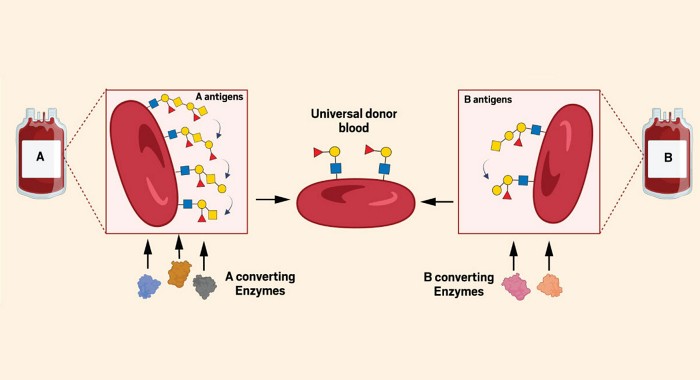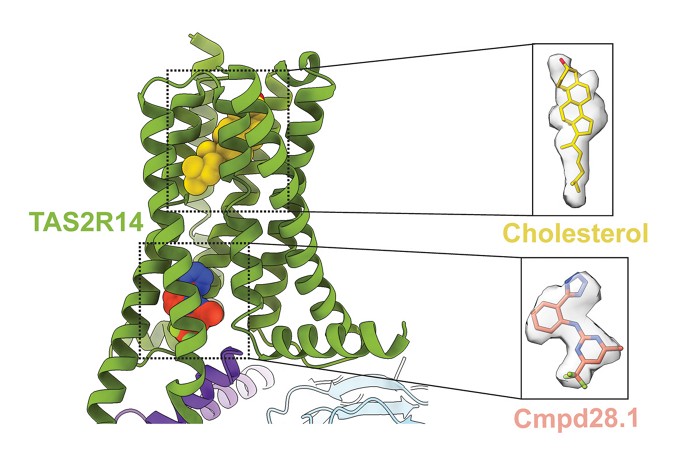×
CEN's 2020 Trailblazers
Paula Hammond: Drug delivery pioneer
Oluwatoyin "Toyin" Asojo: Rare-disease drug hunter
Laura Dassama: Sickle cell fighter
Cordell Hardy: Industrial innovator
Vernon Morris: Atmosphere investigator
Isiah Warner: Materials maestro and mentor
Malika Jeffries-EL: Semiconductor materials maven
Squire Booker: Catalysis champion
Jamel Ali & Patrick Ymele-Leki: Biofilm-busting duo
Carl Bonner: Jack of all chemistries
Cato Laurencin: Tissue regenerator
Kristala Prather: Synthesis warrior
Samson Jenekhe: Polymer powerhouse
Davita Watkins: Supramolecular chemistry sleuth
Karen Akinsanya: Strategic drug discoverer
Lynden Archer: Entrepreneurial educator
Etosha Cave: CO2 converter
Kimberly Jackson: Cancer slayer
Thomas Epps & LaShanda Korley: Upcycling champions
Sherine Obare: Interdisciplinary icon
Historical profiles
Contributors
C&EN's 2020 Trailblazers Celebrating badass women entrepreneurs in chemistry
Advertisement
Grab your lab coat. Let's get started
Welcome!
Welcome!
Create an account below to get 6 C&EN articles per month, receive newsletters and more - all free.
It seems this is your first time logging in online. Please enter the following information to continue.
As an ACS member you automatically get access to this site. All we need is few more details to create your reading experience.
Not you? Sign in with a different account.
Not you? Sign in with a different account.
ERROR 1
ERROR 1
ERROR 2
ERROR 2
ERROR 2
ERROR 2
ERROR 2
Password and Confirm password must match.
If you have an ACS member number, please enter it here so we can link this account to your membership. (optional)
ERROR 2
ACS values your privacy. By submitting your information, you are gaining access to C&EN and subscribing to our weekly newsletter. We use the information you provide to make your reading experience better, and we will never sell your data to third party members.
Biochemistry
Movers And Shakers
Patrick Ymele-Leki and Jamel Ali want to understand how bacteria form impenetrable biofilms
These friends and chemical engineers hope to find new insights into biofilm biochemistry to guide the development of new antibiotics
by Frieda Wiley, special to C&EN
February 22, 2021
| A version of this story appeared in
Volume 99, Issue 6
Patrick Ymele-Leki and Jamel Ali met in 2011, when Ali was a graduate student pursuing his master’s degree in chemical engineering at Howard University and Ymele-Leki had recently joined the same department as an assistant professor. It’s unusual for friendships to be forged across the student-professor divide, but since then, the pair have stuck together like two microbes in a biofilm.

Credit: Michael A. McCoy
Patrick Ymele-Leki
Patrick Ymele-Leki
Home countries: France and Cameroon
Education: AS, Montgomery College, 2001; BS, 2003, and PhD, 2009, University of Maryland, Baltimore County
Current position: Professor of chemical engineering, Howard University
Go-to stress reliever: Movies and animes
Book that made an impact on him: Makes Me Wanna Holler: A Young Black Man in America, by Nathan McCall

Credit: Mark Wallheiser/FAMU-FSU College of Engineering
Jamel Ali
Jamel Ali
Hometown: Washington, DC
Education: BS, 2011, and MS, 2013, Howard University; PhD, Drexel University, 2016
Current position: Professor of chemical and biomedical engineering, Florida A&M University–Florida State University College of Engineering
Go-to stress reliever: Classical music
Best professional advice he’s received: Find a field that you’re passionate about and one that is not oversaturated.
These films, which bacteria make by releasing sugars, form a barrier impenetrable by many molecules and help make the microbes resistant to antibiotics. In August of 2020, the National Science Foundation awarded Ymele-Leki and Ali—now a professor at Florida A&M University–Florida State University College of Engineering—a grant to study the detailed mechanisms by which bacteria create these biofilms.
Little is known about how biofilms form. Ymele-Leki and Ali hope to uncover the details of how the flow of surrounding fluids affects biofilm formation early in the process. In the bloodstream, the gut, and environments such as groundwater, water treatment systems, catheters, ship hulls, and industrial piping, bacteria experience mechanical forces caused by the flow of liquids.
Ymele-Leki and Ali are evaluating how external flow affects the microbes’ ability to stick to surfaces and the initial distribution of bacteria on surfaces. Next, they’ll measure the forces that flow exerts on biofilms and how these bacterial interactions drive biofilm formation.
“These flows have a huge impact on the ability of bacteria to stick to surfaces, stay firmly attached, and grow,” Ali says. Bacteria have power in numbers. When they congregate in biofilms, they gain properties they do not possess individually. For example, thanks to enhanced cell signaling and changes in gene expression, microbes living in biofilms are up to 1,000 times as resistant to antibiotics as individual cells are. Ali says he hopes this research will provide fundamental insights into how a bacterium’s external environment influences its survival and interaction with its microbial kin.
Ramesh C. Chawla, a chemical engineer at Howard University, says Ali and Ymele-Leki have a lot in common—and not just their research interests. “They are both diligently committed to their work, inquisitive yet patient, likely to come up with out-of-the-box approaches to tackling major scientific challenges,” he says. The pair work on more than science. Their personal backgrounds drive their passion for outreach as well. Both, Chawla says, are “equally passionate about mentoring a younger generation of scientists and developing outreach programs for underrepresented middle and high school students.”
The scientists bonded when they met because they both have international backgrounds. Born in France to parents of Cameroonian descent, Ymele-Leki immigrated to the US to go to college. Ali was born in the US to an Indo-Trinidadian father and an African American mother. At the time, his father was pursuing a graduate degree at Howard, while his mother was working for the Federal Bureau of Investigation. Ymele-Leki and Ali pursued similar academic routes, earning PhDs in chemical engineering and then teaching at historically Black colleges and universities (HBCUs).
In their individual labs, the pair work on complementary aspects of microbiology. Ymele-Leki is searching for new antibiotic candidates. Ali, with the help of middle and high school mentees in his lab, is investigating how nutrient types and concentrations affect the virulence of various microorganisms.
The researchers hope their work will ultimately pave the way for new antibiotics that can fight resistant bacteria. Their achievements, Ymele-Leki and Ali say, are a by-product of the chemical bond between friends who became colleagues.
Chemical & Engineering News
ISSN 0009-2347
Copyright © 2024 American Chemical Society




Join the conversation
Contact the reporter
Submit a Letter to the Editor for publication
Engage with us on Twitter